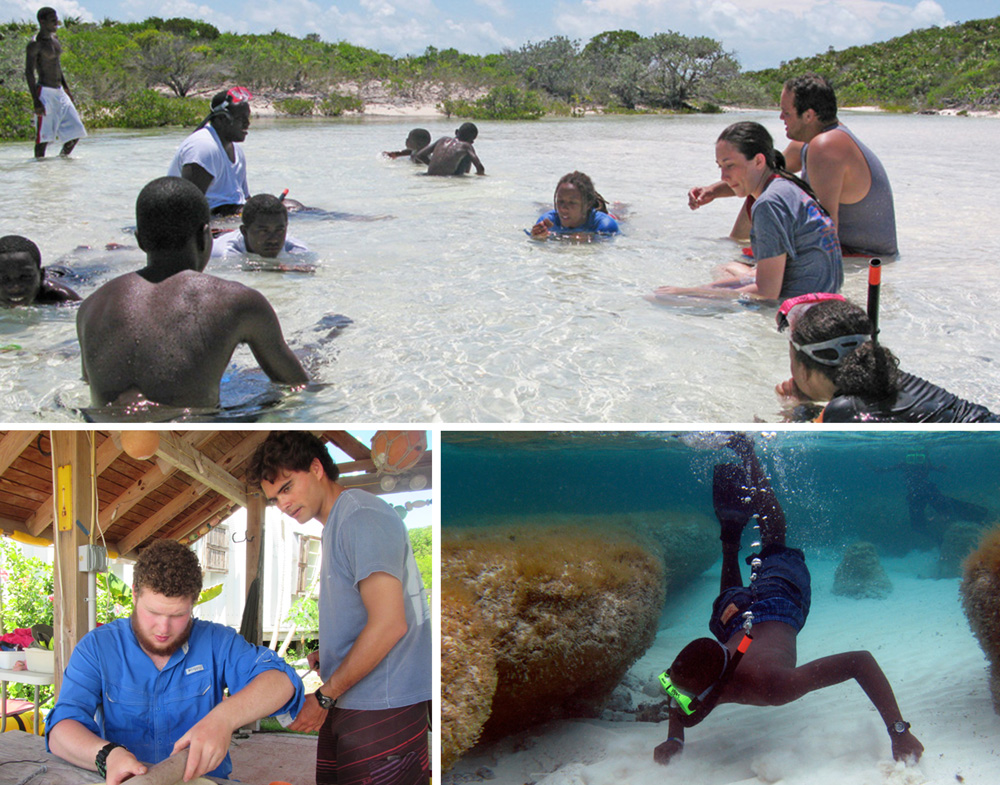Education
Mission
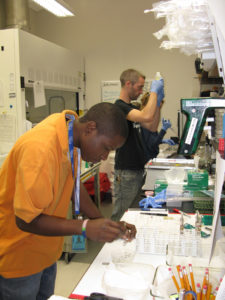
Education is a vital component of Bahamas Marine EcoCentre. Our goal is to promote ocean literacy, i.e. an understanding of the ocean’s influence on man and man’s influence on the ocean. Covering most of the planet, the ocean regulates weather and climate, provides critical oxygen, and feeds much of the human population. Climate change, ocean acidification, and overfishing are some of the pressing issues involving our marine environment that challenge the future health of our planet.
Alf Thompson Memorial Scholarship (ATMs)
One of the highlights of BME’s educational programme is The Alf Thompson Memorial Scholarship (ATMS). This annual scholarship provides internship opportunities for Bahamian students and early career scientists to experience hands-on research using state-of-the-art techniques. The expectation is that the internship experience will motivate students to further their studies and ultimately pursue careers in the field of science.
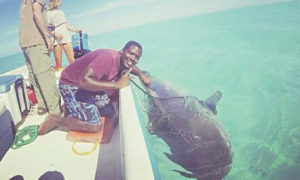
ATMS was initiated in 2011 to honor the passing of Alf Thompson, a Bahamian trained in engineering and the sciences. In the first two years, the award enabled three Bahamian students to participate in summer internships at the Kennedy Space Center, Florida. Subsequently, scholarship recipients interned at the Bimini Biological Field Station, where the focus is shark research, including population demographics and dynamics, molecular and behavioral ecology, bioenergetics, sensory biology and physiology. Applications are available early in the New Year and awards are made annually in the spring.
Alf Thompson Memorial Scholarship (ATMS)
Click the button above to download the 2020 ATMS application package.
| DATE | ATMS RECIPIENT | INTERSHIP LOCATION |
| 2019 | Daniela Brown, Nassau Paloma Cartwright, Long Island | Bimini Biological Field Station, Bahamas |
| 2018 | Melissa Ingraham, Nassau Hydie Knowles, Nassau | Bimini Biological Field Station, Bimini, Bahamas |
| 2017 | Silia Woodside, Grand Bahama Franchesca Palomino, Nassau | Bimini Biological Field Station, Bimini, Bahamas |
| 2016 | Bianca Barone, Nassau Jewel Thompson, Nassau | Bimini Biological Field Station, Bimini, Bahamas |
| 2015 | Tyler Knowles, Long Island Gisselle Deane, Nassau | Bimini Biological Field Station, Bimini, Bahamas |
| 2014 | Fran Rahming, Freeport Brynton Johnson, Nassau Luke Johnson, Freeport | Bimini Biological Field Station, Bimini, Bahamas |
| 2013 | Vanielle Rabier, Nassau Chris Ferguson, Nassau | Bimini Biological Field Station, Bimini, Bahamas |
| 2012 | Justin Lockhart, Nassau Oliver Lundy, Nassau | NASA, Kennedy Space Center, FL |
| 2011 | Lavardo Mckenzie, Barretarre Exuma | NASA, Kennedy Space Center, FL |
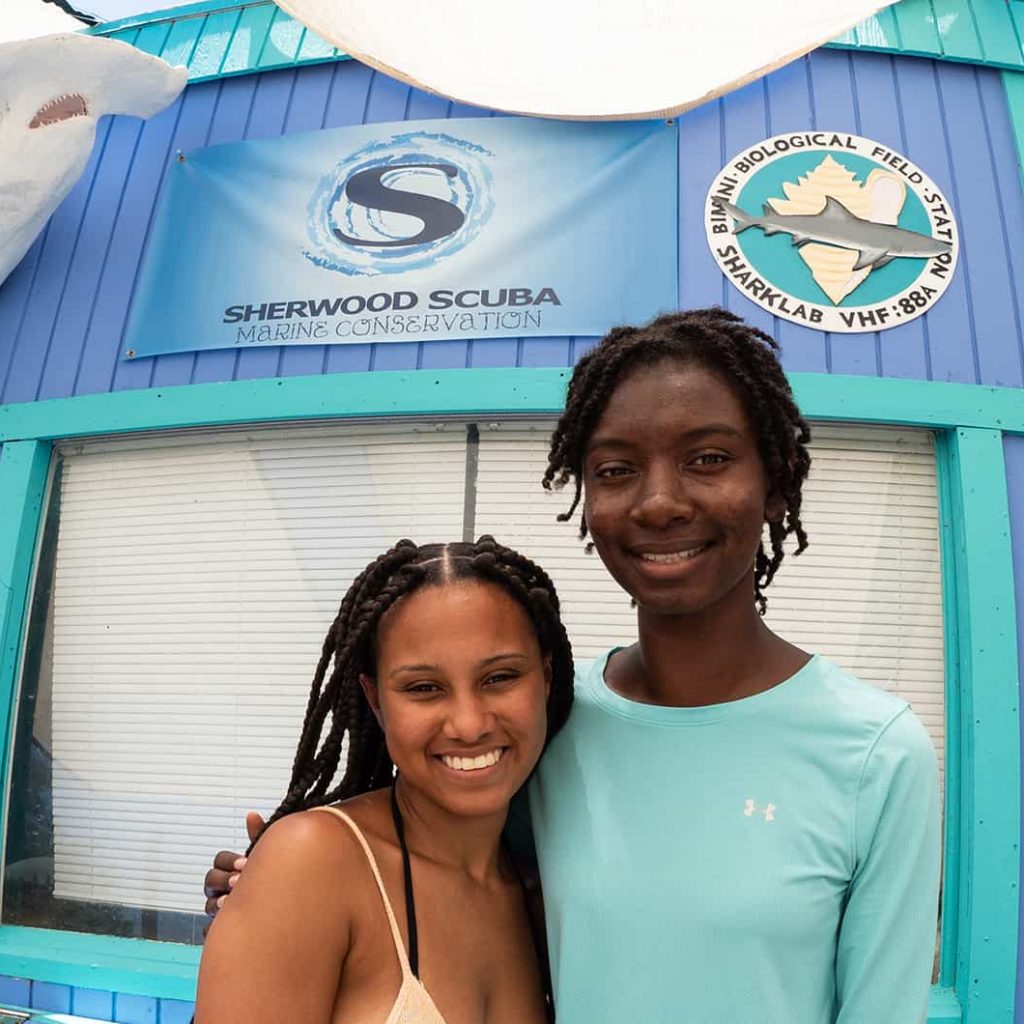
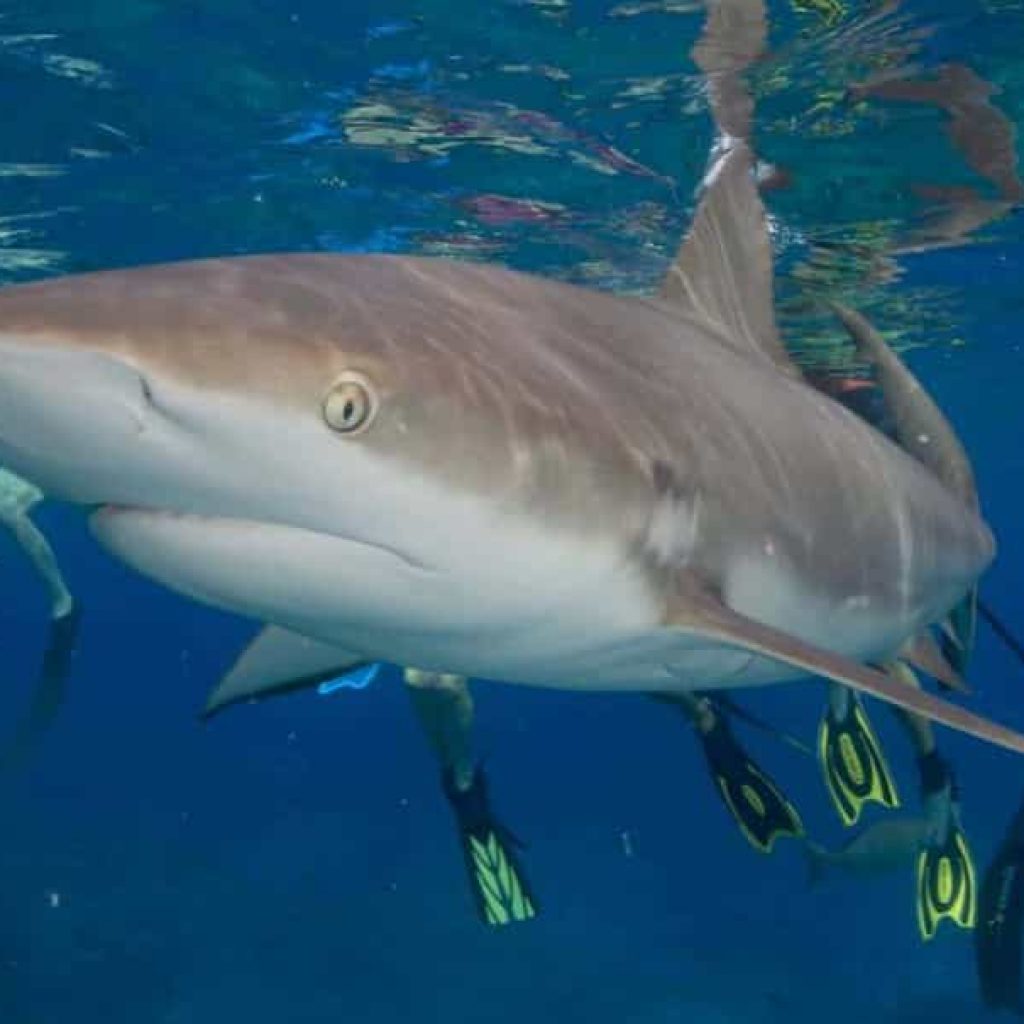
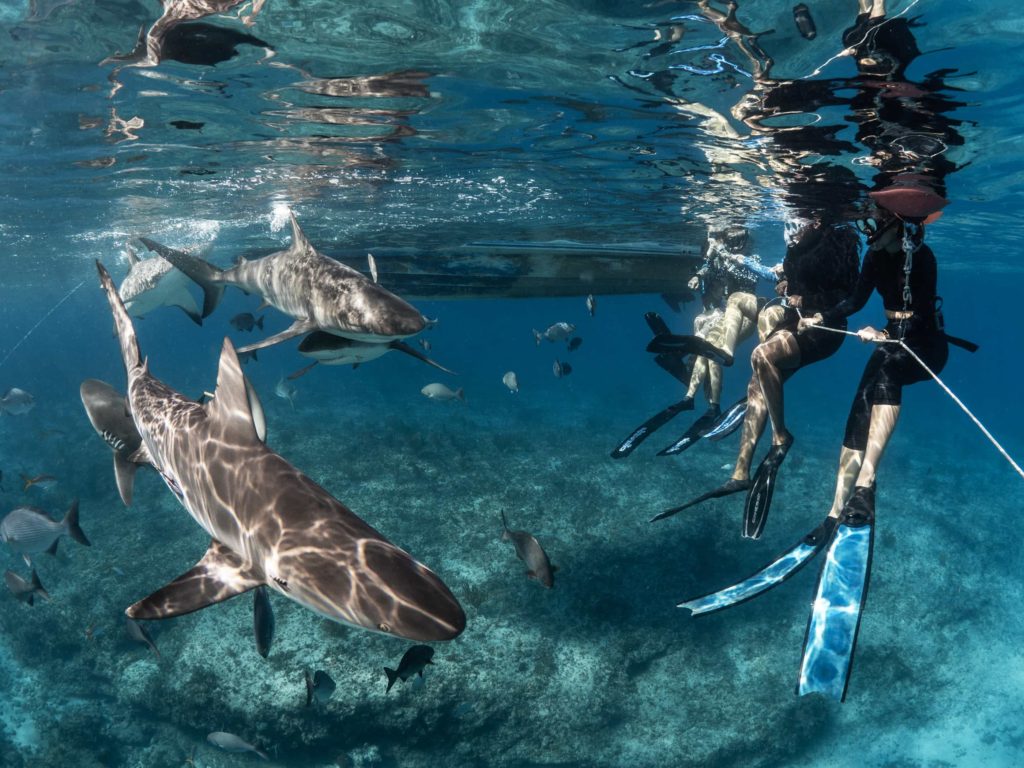
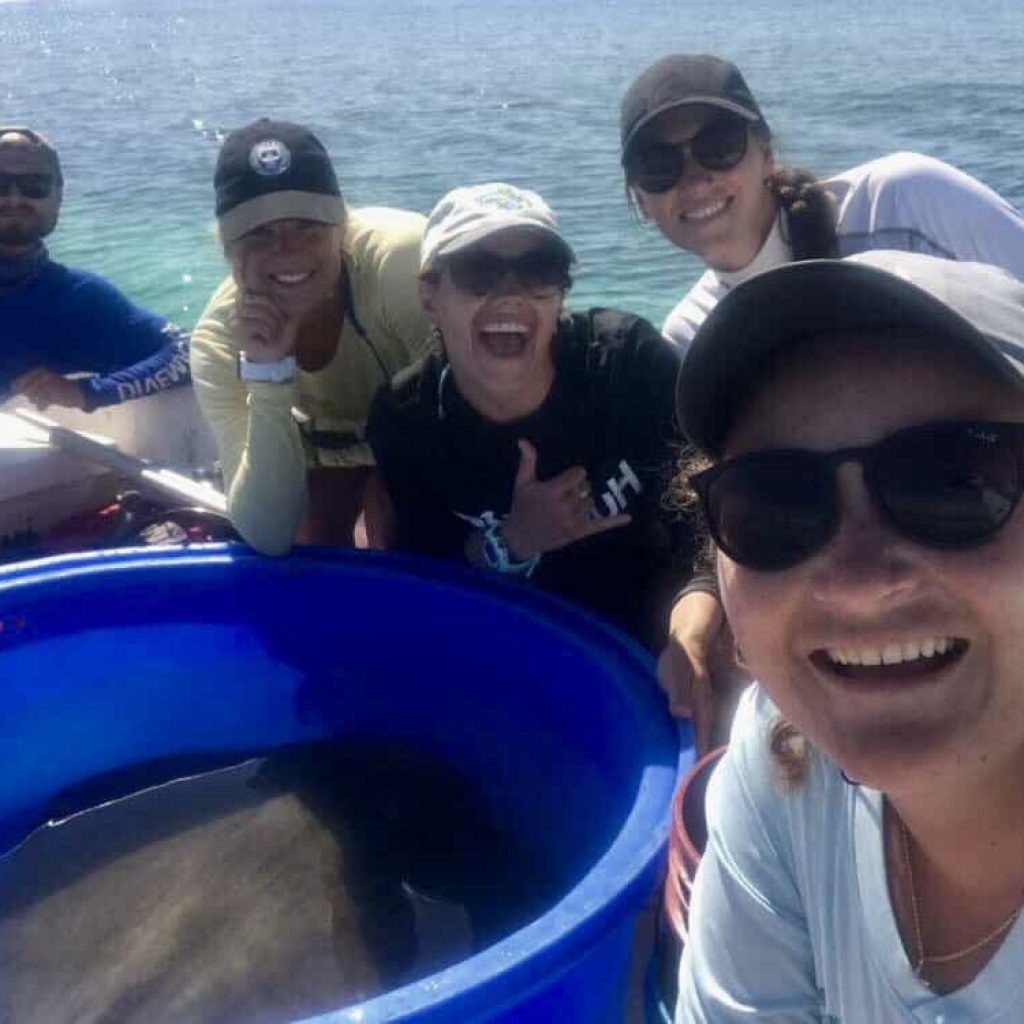
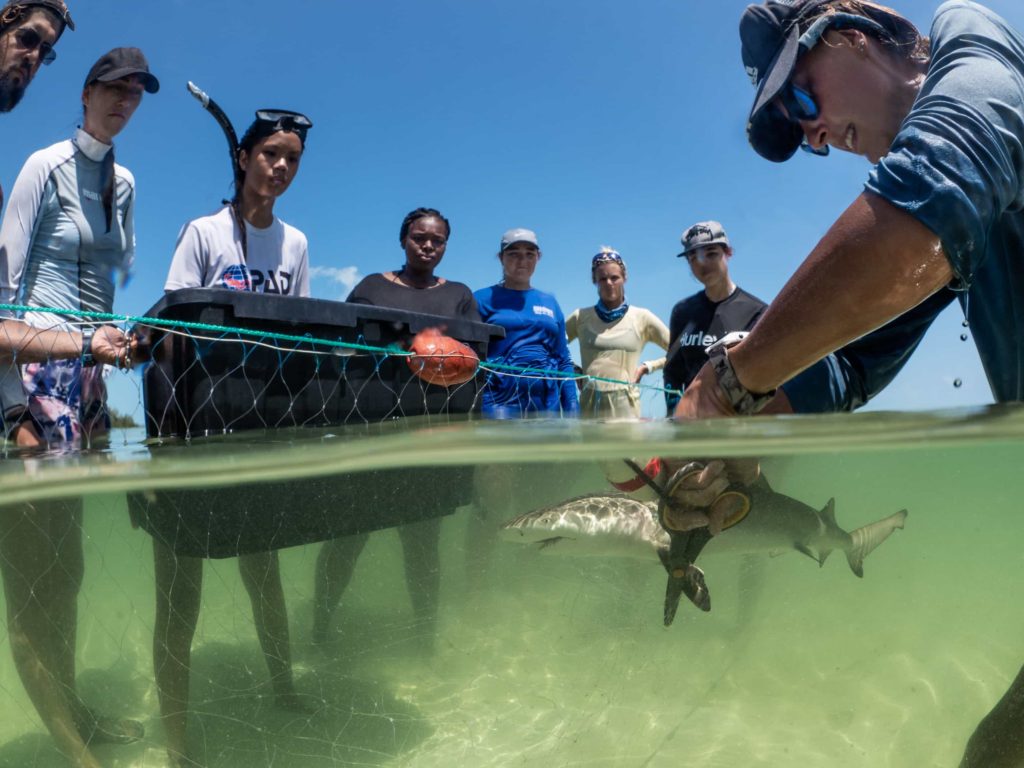
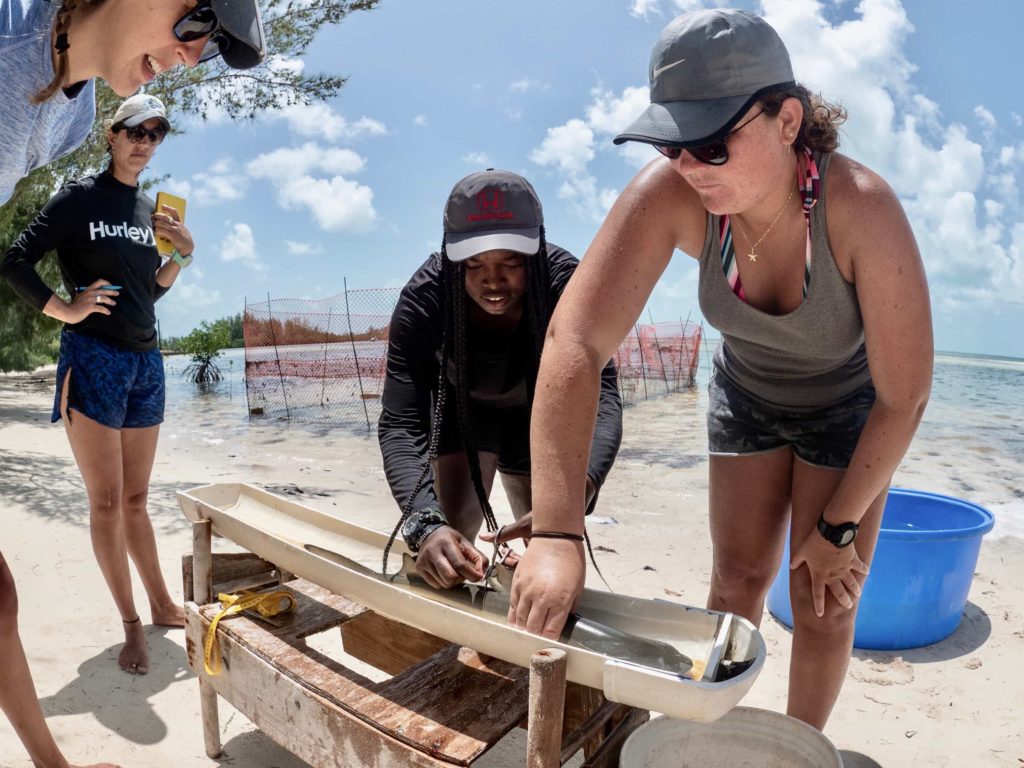
“You is a Bahamian, what you doing swimmin’ with sharks?”
I think this is the most common question I received from the locals during my time in Bimini. Every time I spoke, the locals would immediately look at me and say, “You from Long Island.” So then, why am I, a born and raised Bahamian island girl, here in Bimini studying sharks? This question was even more puzzling when people learnt I’m studying Computer Science at McGill.
However, since I was just old enough to learn how to swim, I have been fascinated by all marine life, turtles, sharks, whales, fish, conch; you get the picture. But in the Bahamas, sharks are still taboo creatures; if you see a shark, you get out of the water. So, imagine my anticipation, excitement and honestly, hesitation when we headed out to a reef shark dive on one of our first days here. Everything that I had thought I knew about sharks was changed during this experience and has continued to change over the past month.
I remember the feeling of holding a baby shark for the first time. It was surreal. This shark that I knew had so much power, was sitting so calmly in my hold. Not trying to attack, not angry, not aggressive, just swimming along peacefully in my hold. The same excitement was experienced when we went to Aya’s spot and fed the baby lemon sharks. These sharks find sanctuary in the mangroves from larger sharks during high tide. To have feisty baby lemon sharks bump into my legs during feeding was surreal. There were so many days like this that made me fall in love with sharks of all kinds.
My favorite day at the lab definitely had to be stingray catching. Great hammerhead sharks can sense a buried southern stingray using their ampullae of Lorenzini.
These are jelly filled pores on the sharks that can detect electrical pulses, in this case heartbeats. The volunteers are definitely not that talented, so we all gathered up into two skiffs to search for stingrays. Once one was located, we would corral, trap, and then net them so that they could be used in one of the studies happening at the lab. This was only successful with active communication and cooperation, and the volunteers all worked together to catch 4 stingrays. We laughed together, yelled together and celebrated the captures together.
The Sharklab experience wasn’t just about learning in the field. It was also about gaining life skills, experiencing new things & making lasting connections with people who have similar interests and goals. It was about finding the strength to keep going even when you’re exhausted after a 5-hour longline set, realizing everything (especially duty day) is easier when you work together as a team, and accepting that salt water showers are not actually that bad. My month at the Sharklab has affected my life in so many positive ways and I am so grateful for the Alf Thompson Memorial Scholarship for funding my time here at the lab. I am determined to someday use my experience at the lab to contribute to marine conservation in the Bahamas.
Other Activities
Bahamas Marine EcoCentre is committed to expanding educational opportunities for students at all levels, from primary school to graduate studies. Activities aimed at promoting an understanding of marine ecosystems range from summer camps which introduce local youth to marine flora and fauna, to seminars and courses for local and international students.
Initial education efforts by BME involved development of the Young Bahamian Marine Scientists programme (YBMS). YBMS has since evolved into an independent organization known as Young Marne Explorers (YME).
